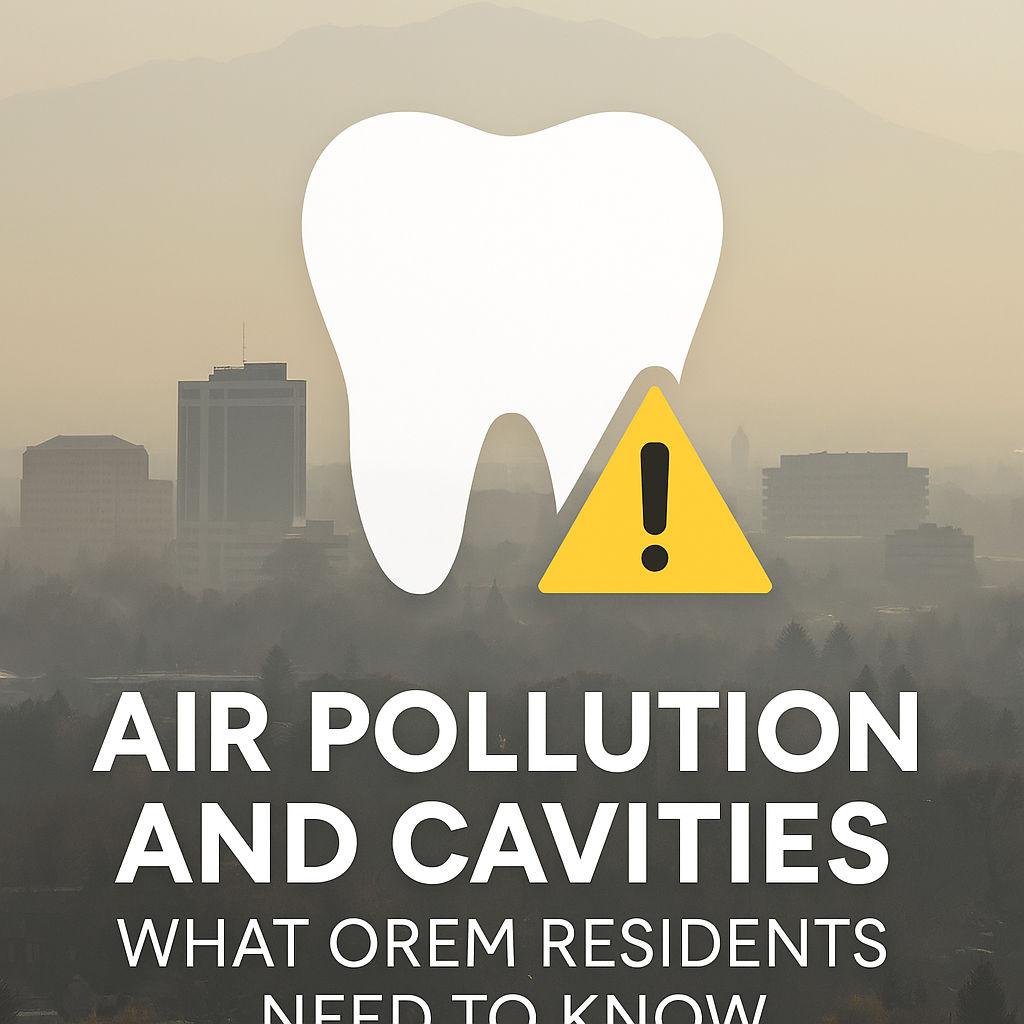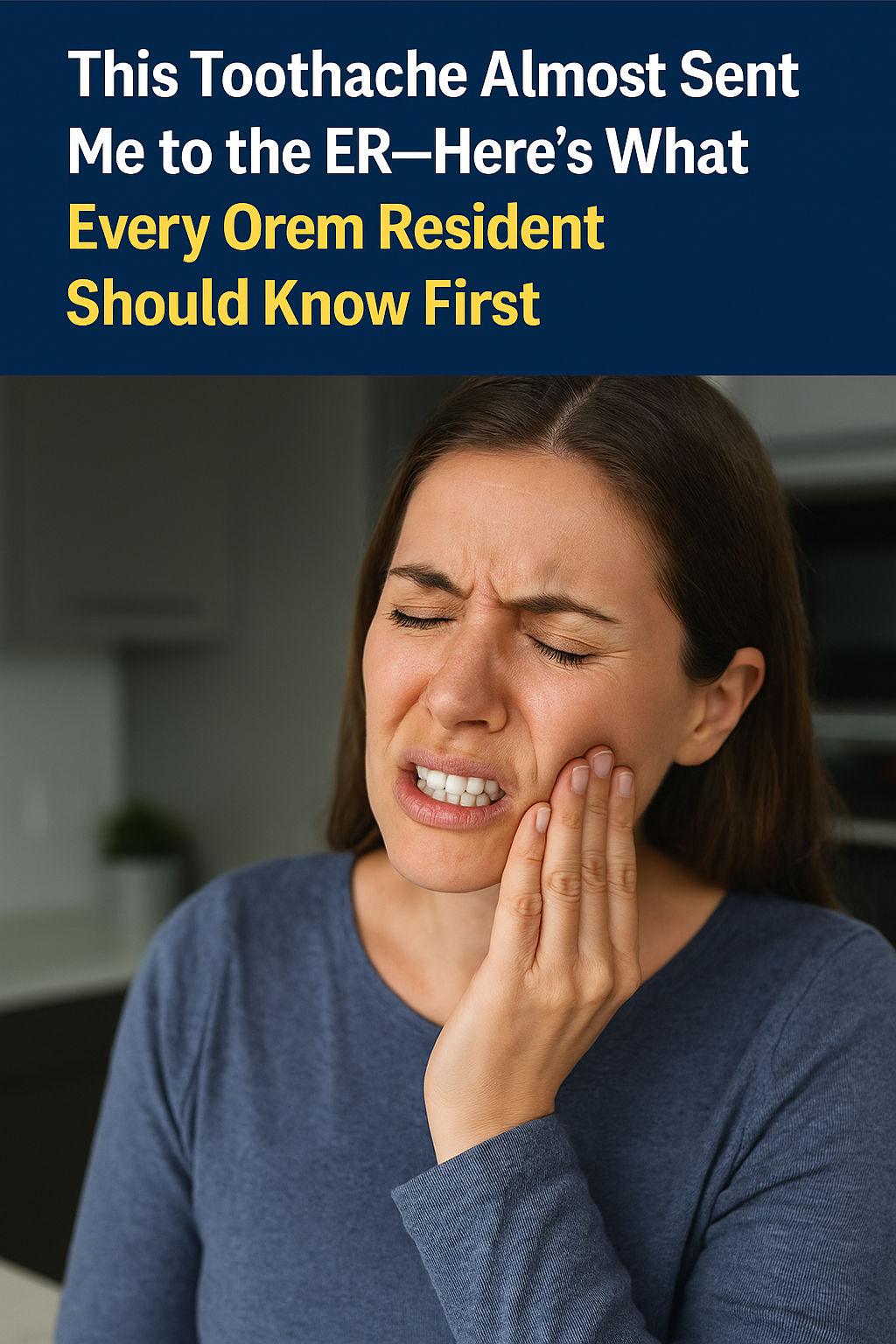- Toothaches can happen for a number of reasons
- Different types of tooth pain usually indicate different types of causes
- Toothaches are a serious problem and should be evaluated by a professional
Toothaches are one of the most common emergency dentistry afflictions. Everyone, at some point in his or her life, is likely to experience the dull throb or excruciating pain of a toothache. In fact, toothaches are probably one of the most frequent complaints we hear at our dental office here in Orem Utah.
Teeth are about 96 percent non-organic hydroxyapatite or crystallized calcium. They are the hardest part of the human body. This calcium outer shell of the tooth, the part that you see, covers a bony mass called the dentin. The dentin surrounds or protects the tooth pulp. The pulp houses the blood vessels and nerves of the tooth. The nerves allow the tooth to connect with the surrounding muscles, the brain, and the jawbones that help facilitate chewing. The nerves in your teeth, and specifically the sensations they cause, help guide your chewing and allow you to eat. Additionally, the nerves help you sense hot and cold things in your mouth. They work as a warning and help protect your mouth. If something is too hot or too cold the nerves in your teeth will let you know.
So, what exactly is a toothache? Tooth pain occurs when the nerves that run under, around, and through your teeth are compromised or have been painfully stimulated. When the nerves become exposed, irritated, or damage, this results in tooth pain.
Toothaches can happen for a number of reasons. Dental decay, abscesses, cracked teeth, general trauma, infections, dry socket, cavities, tooth root exposure, gum problems, and broken restorations are just some of the causes of nerve irritation and the resulting toothache. In some cases, you may have some idea of what caused or is causing your tooth to ache, but most of the time, toothaches appear for no apparent reason. Our emergency dentistry professionals can easily determine the cause and seriousness of the problem. They will offer you some relief and decide on the best long-term treatment or solution for your tooth.
Different types of tooth pain usually indicate different types of causes. If you have a toothache only when you’re eating, you probably have a fracture in the enamel of your tooth or tooth decay that has resulted in an exposed nerve. If the painful sensation is momentary and your tooth seems sensitive to heat, cold, or sugar, it’s likely that you have a cavity. Whereas, a sharp or jabbing pain in one or more teeth that occurs when you chew, open your mouth, or eat cold foods may indicate a cavity, a crack in the tooth, or an infected abscess.
If you experience a sharp pain when eating something very cold or very hot, you may have an exposed tooth root. Either rough brushing or a gum that has receded often causes exposed tooth roots. Dull pain that lingers and is mild may indicate a damaged nerve or tooth decay. This type of toothache is common in people who grind their teeth or grit their teeth. Extreme throbbing is often a result of an infection or abscess. This can develop into a serious and dangerous condition. If not treated immediately, the infection can do damage to the tissues of your mouth.
If you start to experience pain in the back of your jaw, you may have an impacted wisdom tooth. This happens when the wisdom teeth, the last set of molars, don’t grow in properly or don’t have enough room to grow in and remain under the gums. It can be extremely uncomfortable and can cause problems with the alignment of your other teeth, damage to your jaw, and lead to infection if not extracted promptly.
Tylenol, Advil, and Aleve can provide temporary pain relief from most toothaches. Orajel can be applied directly to the affected area for pain relief, too. For a more natural pain reliever, try biting on cotton balls soaked in oil of cloves. Avoid hot and cold foods, which could make the pain worse. For infections, you might try taking some garlic supplements or eating more garlic. Garlic is a natural antibiotic and can help stop a tooth infection from growing and spreading. However, it’s important to remember that these “treatments” are simply to help manage the pain while you seek professional emergency dentistry treatment. They are not a permanent solution and will not cure your toothache.
Toothaches are a serious problem and should be evaluated by a professional. Toothaches can be categorized as emergency dentistry and treatment should not be delayed. If you are experiencing a toothache and are in Orem Utah, we highly advise you to pay a visit to our dental office. Our dental professionals will determine the cause of your toothache and the best course of treatment for you.





